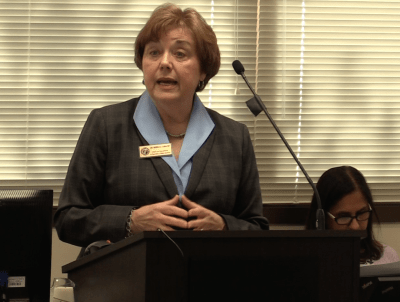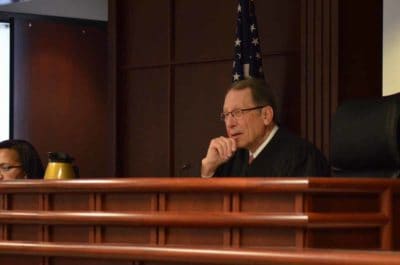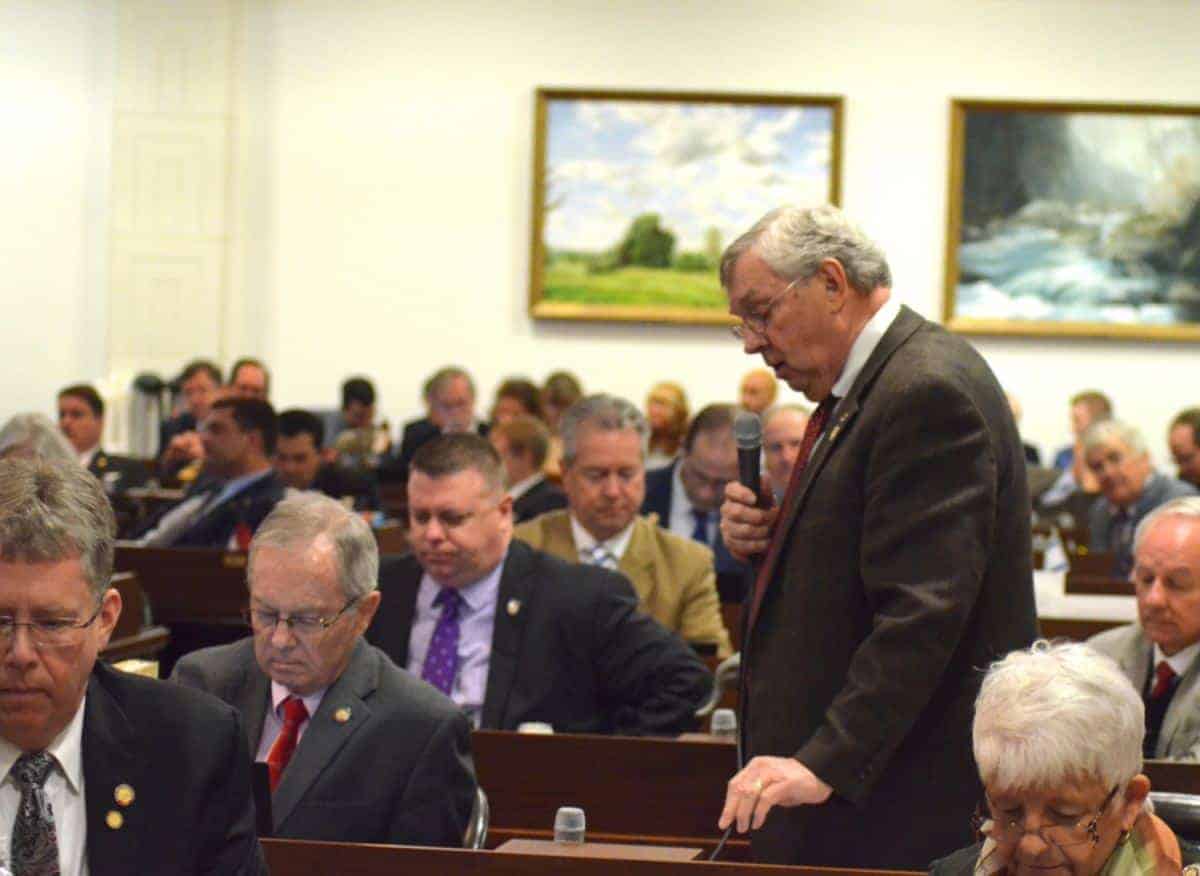The state House voted to approve a bill solving the class size crisis that has been the focus of controversy, conflict, and complaints over the last year. But Democrats say extra provisions in the bill put the class size fix in peril.
“There is no severability clause in this conference report, which means if any part of it is unconstitutional, all of it is unconstitutional,” said Rep. Darren Jackson, D-Wake, House minority leader.
Two extra provisions in the bill were the focus of complaints by Democrats in the House. One involves the Board of Elections and Ethics Enforcement; the provision would add a ninth unaffiliated seat to the board; the current board has four Republicans and four Democrats.
Jackson said that according to his reading of a recent Supreme Court opinion related to the Board of Elections, because the Governor would not be able to appoint a clear majority of his party to the board, it is unconstitutional. Thus, he said the whole bill will fall if challenged in court since there is no severability clause in the legislation separating the provisions from each other in law.
Rep. Susan Fisher, D-Buncombe, went further and said that the funds for the class size fix will be held up even while the Board of Elections provision is taken up in court, if the matter is litigated.
Rep. David Lewis, R-Harnett, said that in his reading, the Supreme Court decision on the Board of Elections case simply said a 50/50 split on the Board of Elections was unreasonable, and that the provision in this bill solves that problem.
“I also want to state that passing this bill simply will mean that our schools with have everything they would have had plus much more,” he said.
Rep. Craig Horn, R-Union, a chair of the education and education appropriations committees, said in an interview after session that he is not sure what would happen if the bill goes to court.
“I wish I could give you a nice concise answer. I don’t know. I really have no idea,” he said.
He said he worked specifically on the education portion of the bill and was not involved in the other provisions.
“I leave it to my colleagues that worked on the other pieces and parts to have crafted it correctly,” he said.
The other contentious provision in the bill is related to the Atlantic Coast Pipeline and concerns about $58 million. Under the bill, school districts in eight counties which the pipeline will travel through would receive the funds. It takes away the governor’s discretion with regards to the funds. The governor’s office had said it would use the money on economic development in the eight counties, renewable energy advancement, and to address environmental damage related to the pipeline.
The education portion of the bill phases in implementation of lower class sizes in grades K-3 over the next four years (with nothing changing next year) while providing almost $60 million in additional funding for enhancement teachers (art, physical education, music) next year. Henceforth, enhancement teachers will be funded by a separate allotment from classroom teachers. Previously, funds for the two were combined in one allotment. The amount of money for enhancement teachers would increase each year depending on the needs of districts. School districts would also continue to get about $70 million each year for hiring K-3 teachers to meet class size mandates. In total, under the plan, school districts would get $250 million in additional recurring funds by the 2021-22 school year.
Lawmakers also added into the bill more money for NC Pre-K, which will eliminate the current waiting list for the program by the 2020-21 school year.
The class size issue dates back to 2016 when the General Assembly mandated class size restrictions in grades K-3. Districts around the state were upset, saying the change meant they would have to eliminate extracurricular teachers in subjects like music, art, and physical education, and they would need extra space and classrooms to meet the mandate. Districts do not receive much in the way of state money for facilities, so they would be left paying for any additional buildings or classrooms themselves. In 2017, the House tried to reduce the restrictions with House Bill 13, but the Senate transformed the bill and the version that passed only delayed the most stringent restrictions for a year.
During the debate on the bill, legislators seemed united on the need for the class size fix, but Democrats had complaints about the extra provisions and about specific portions of the class size plan.
Rep. Cynthia Ball, D-Wake, said that the extra provisions made the bill a tough vote.
“It’s not a clean bill,” she said, adding later: “My mail and phone calls are split on how I should vote. But they all say that they are very disturbed that this is not a separate bill just for our kids.”
Ultimately, she said she would vote yes.
Jackson praised the class size portion of the bill, but criticized that the bill did not focus solely on that.
“Unfortunately, the bill doesn’t just stop there, and has some other things,” he said before going on to criticize what he considered the unconstitutionality of the Board of Elections provision.
Rep. Henry Michaux, D-Durham, said because the bill does not include money for extra facilities — which many districts say will be necessary to meet the class size requirements and extra teachers that will need to be hired — it amounts to an unfunded mandate. Michaux said bigger counties like Wake and Mecklenburg may be able to handle the increase costs, but others will not be so lucky.
“I’m looking at the smaller counties where they’re probably going to have to increase taxes,” he said.
Horn said this bill was just a first step.
“Like in all bills, There’s always more work to be done,” he said. “I’m looking for your support on that more work.”
Horn also said a $1.9 billion bond bill in the House could raise funds for counties to use on school facilities. A companion bill is in the Senate, but the legislation is stalled in committee in both chambers.
Rep. Cecil Brockman, D-Guilford, doubled down on the lack of facilities funds and asked Horn what Guilford County should do to meet additional costs.
Horn said Brockman should support the class size bill, as a first step, and support the bond bill when it comes back up for consideration.
Rep. Nelson Dollar, R-Wake, senior chair of the House appropriations committee, challenged Brockman on whether counties actually disliked the class size legislation.
“I just have one question, are you familiar with any school board or any board of county commissioners that has come out, or any superintendent, who has come out in vocal opposition to this legislation?” he asked.
Brockman responded that Guilford officials told him they would not hold it against him if he voted against the bill.
Later in the debate, Rep. Jon Hardister, R-Guilford, said he stepped out of the chambers to call the superintendent of Guilford County schools.
“She said their primary concern…is class size,” he said, adding that she said the class size bill was a positive step in the right direction.
Dollar called the legislation historic and said: “I trust that we’re going to pass it on a bipartisan basis.”
Ultimately the bill passed 104-12. All 12 no votes were Democrats.
The bill now goes to the Governor for his signature or veto.
Recommended reading




